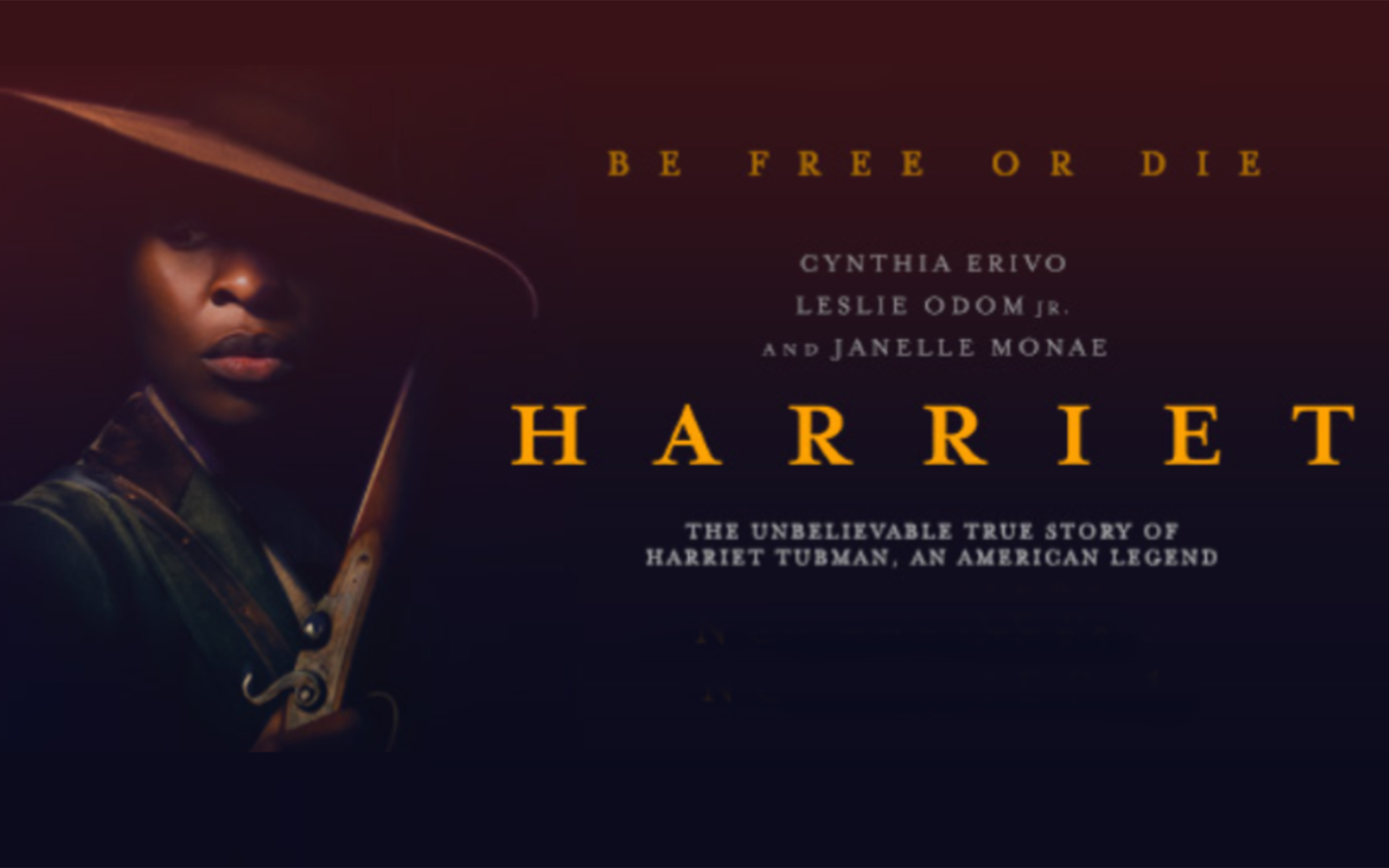Of course, there should have been a biopic about the great heroine, Harriet Tubman, a long time ago (in addition to a $20 bill with her image, but I digress). In “Harriet,” starring Broadway star Cynthia Erivo, we have the first of what hopefully will be many cinematic treatments of this brave and spiritual woman’s life. Though the movie plays it a bit safe, this is a worthy introduction to a life of courage and faith.
Co-written and directed by Kasi Lemmons, “Harriet” begins in 1849, when Tubman — born Araminta “Minty” Ross — was at a crossroads in her life. Long promised freedom, Minty wants to marry her love, a freed slave, but her owners (Sugarland’s Jennifer Nettles as Eliza Brodess and Joe Alwyn as her surly son, Gideon Brodess) manage quite easily to disallow her from either living with her husband or becoming free. But Minty is made of much stronger stuff than her owners could imagine. Nor could they imagine, with their limited and sin-damaged minds, how a great God would guide and strengthen this slave of theirs, empowering her to accomplish mighty acts of justice.
Bashed in the head by her owners as a child, Minty is prone to visions she attributes to God. She has such a vision, prompting her to escape, eluding her captors on an amazing 100-mile trek from Maryland to the free state of Pennsylvania, where she becomes involved with abolitionists. Though she is quite safe in Philadelphia, she can’t live comfortably knowing her family members are still imprisoned in a heinously unjust system back home. She is nothing if not a woman of action. Upon her induction into the Underground Railroad, Minty changes her name to Harriet (her mother’s name) Tubman (her married name), and backtracks to Maryland to rescue her loved ones. Through several tense action scenes, Harriet the abolitionist ends up going back, again and again, to rescue and bring slaves to freedom in the North and Canada. She also becomes the first woman to lead an armed expedition in the U.S. Civil War.
Thankfully, the critical role of Harriet is perfectly cast with Erivo, who plays the small and fiery Tubman with blazing focus, athleticism, and complexity. Janelle Monae, who plays genteel abolitionist Marie, is proud and brave in her own sophisticated way but she would have been all wrong to play Harriet. The filmmakers wisely went with the lesser-known (to moviegoers, not theatergoers) and less conventionally attractive Erivo to portray the steely, gun-toting, relentlessly raw Harriet.
Other standouts include Leslie Odom Jr. of “Hamilton” fame, who plays the abolitionist William Still, and Joe Alwyn who conveys the difficult and distasteful Gideon as a privileged man whose soul is in a dangerous place.
Through Tony-winner Erivo, Harriet’s staunch faith shines through. Her purpose and path are extremely dangerous, yet she—and the 70-plus slaves she brought to freedom—are perfectly safe in the hands of a God who gives timely guidance and provides protection in the presence of their enemies.
“Harriet” may not take many artistic risks in the way that, say, “12 Years a Slave” did; it may even be a tad sanitized. But this Hallmark-movie feel (according to some critics) makes it suitable for young people to be introduced to a stunning heroine and the ruthless system of inhumanity she refused to accept. Harriet Tubman’s transformation from an abused slave girl to the fearless conductor of the Underground Railroad is one that will stay with me for a long time. Rated PG-13 for mature thematic elements throughout, violence, and coarse language, including racial epithets. (Focus Features)
About the Author
Lorilee Craker, a native of Winnipeg, Man., lives in Grand Rapids, Mich. The author of 16 books, she is the Mixed Media editor of The Banner. Her latest book is called Eat Like a Heroine: Nourish and Flourish With Bookish Stars From Anne of Green Gables to Zora Neale Hurston.








